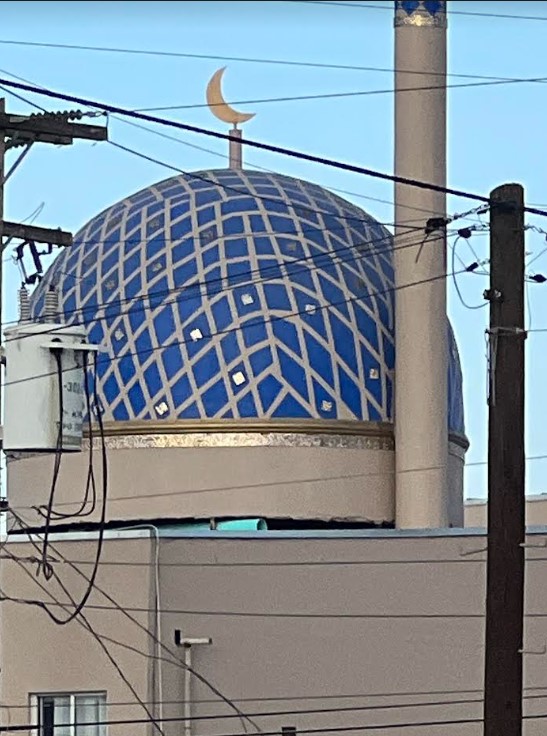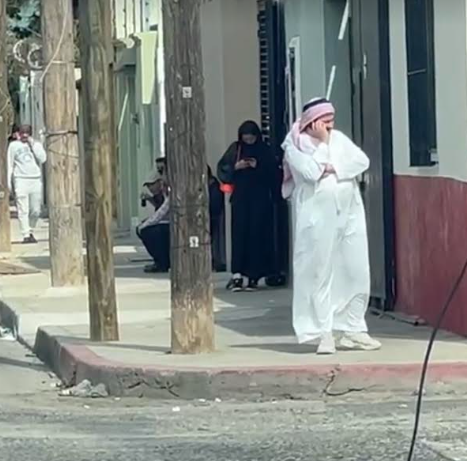Why Isn’t Homeland Security Monitoring A Muslim-Only Immigrant Shelter At The US Border?
In October, U.S. Border Patrol caught another nine border-crossing immigrants who were on the FBI’s terrorism watch list, adding to the already record-breaking 98 during the just-ended fiscal 2022 and 14 during the prior fiscal year.
Those 121 suspected terrorist border crossings should strike President Joe Biden’s homeland security establishment and the general public as a “system blinking red” moment, to requote the infamous 9/11 Commission Report line about failures to act on threat information.
But my recent fact-finding trip to Mexico’s first and only shelter that expressly caters to U.S.-bound Muslim immigrants indicated Biden’s Department of Homeland Security (DHS) sees no blinking red lights amid this current mass-migration border crisis.
In June 2022, the San Diego-based Latina Muslim Foundation noticed significant enough numbers of U.S.-bound travelers from the Islamic world to justify opening the Albergue Assabil/Mesquijta Taybah shelter in a two-story, 8,000-square-foot former nightclub in Tijuana just two blocks from the border wall, which all who stay there intend to bypass one way or another. The shelter serves as a waystation for 30 to 140 immigrants at a time coming from Yemen, Syria, Afghanistan, Pakistan, Lebanon, Egypt, Morocco, Tajikistan, Uzbekistan, Somalia, Chechnya, and other regions in the Middle East, North Africa, and South Asia where terrorist organizations operate.
Latina Muslim Foundation Director Sonia Garcia told me she is concerned that Islamic terrorists may use her Tijuana shelter and does her best to ferret them out during interviews. She’ll even call in Mexican law enforcement authorities to investigate deceptive and suspicious persons. Mexican authorities recommended that she reject two of them for shelter assistance on terrorism grounds.

“I’m not the person who is going to hide the reality of what people do, regardless of their religion,” Garcia said. “Just because they are Muslims, [we] are not going to let them come to the United States or Mexico to hurt people. That’s it. We’re not into that. We’re just here to help people.”
In ordinary times, when a historic-sized mass migration crisis is not raging, clientele like hers would bring the shelter more attention from law enforcement. That’s because, for more than 15 years, American homeland security has officially tagged U.S.-bound immigrants from such countries as “special interest aliens.” The SIA tag is supposed to trigger bilateral law enforcement and counterterrorism screening with Mexico to investigate them further.
Mexico Collaborates When Manageable
As noted in my book “America’s Covert Border War, The Untold Story of the Nation’s Battle to Prevent Jihadist Infiltration,” Mexico’s collaboration with the United States on counterterrorism has been extensive and to great effect — in non-crisis times when human flows are manageable.
Mexican intelligence often runs the names of special interest aliens through American security databases and allows U.S. officers into detention facilities to interview many of them — before they can cross. Mexican customs officers working in Mexican airports also run identities of arriving special interest aliens through U.S. databases. Mexico has proven sensitive to U.S. requests that it deport the identified extremists to their home countries before they can reach the southern border.
A recent Milenio newspaper investigation based on leaked classified Mexican Ministry of National Defense documents revealed a variety of cases where Mexican and American intelligence agencies working together discovered Islamic terrorists in Mexico in 2015, 2016, and 2017 — a number of them in Tijuana. Some were working on behalf of the Islamic State. The Milenio story details extensive Mexican collaboration with American intelligence agencies on these cases, for example on a January 2017 investigation of an Algerian in Mexico that resulted in the dismantling of an ISIS cell in Algeria.
Between 2014 and 2018, Mexico’s National Institute of Migration identified 19 suspected terrorists in its territory and deported them all, undoubtedly at American behest.
U.S. Not Inquiring About Shelter
But nothing is normal now with the crisis. Garcia told me the Americans have never called asking about any of the terror-watch-listed immigrants caught crossing the border, except early on when Afghans started showing up and the U.S. consulate in Tijuana came to interview them.
Garcia said she would be happy to provide the Americans with all information the shelter maintains about every person who stays overnight if they ever call.

“If somebody’s on the [FBI] list and they want to find out if they came from the shelter, well, they’re welcome to come to the shelter and ask us,” she said. “We have no problem in giving the information or in hiding the information, no. If he is on the watch list and he came into the shelter, well it’s very good because we’ll give [the Americans] the information. We’re not hiding the information.”
The Mexicans are no more proactive about her guests, she said, beyond when she calls them in. Outside her facility recently, several young Chechen men described journeys in which they flew to Mexican airports on Russian passports and were never delayed or interviewed.
Is this a replay of unseen red lights blinking amid a massive crush of millions of immigrants overwhelming both the Americans and the Mexicans?
Going to ‘Blow Something Up’
“Eventually these guys are going to go in and blow something up and it’s going to be a huge scandal,” said former President Donald Trump’s ambassador to Mexico, Christopher Landau, when I described my findings. “You’d think we’d learn something from 9/11. I would think that this is a DHS concern about monitoring who is making their way to our country. If I were the ambassador, I’d be very curious about this shelter, like who is there and what kind of people are trying to come into our country.”
So too would retired FBI Supervisory Special Agent James G. Conway, who led post-9/11 counterterrorism programs in Mexico for years and vetted thousands of special interest aliens. After all, in no other single shelter would SIAs planning border crossings congregate as they do in this one.
“I would be all over this place,” Conway said. “The fact that terrorist organizations are based in some of those countries and want to bring harm to the United States, and that this shelter that specifically caters to citizens from special interest countries two blocks from the U.S. border is helping to funnel them into the United States, should certainly be a concern to law enforcement and the intelligence community.”
Covert Operations
It is possible that both the Americans and Mexicans are running covert operations in and around the shelter. But that’s doubtful too, according to two intelligence community sources who told me it wasn’t on the radar.
“If the Mexicans see that we don’t care about something, then the Mexicans won’t care,” Landau said. “They’re not going to knock themselves out if they see we’re not going to knock ourselves out. I can’t blame them.”
Infamously, the George W. Bush administration — up until Sept. 10, 2001 — didn’t seriously consider intelligence reports that terrorists would ever fly planes into buildings.
Does the Biden administration not believe terrorists could cross the southern border amid the current chaos and could get through to do harm?





Post a Comment